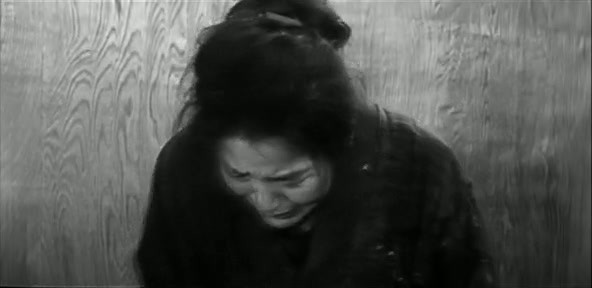Rendező:
黒澤明Zeneszerző:
Masaru SatōSzereplők:
Toshirō Mifune, Yûzô Kayama, Tsutomu Yamazaki, Kyōko Kagawa, Reiko Dan, Miyuki Kuwano, Haruko Sugimura, Kamatari Fujiwara, Yoshitaka Zushi, 菅井きん (több)Tartalmak(1)
A külföldön tanult és elit kórházba vágyó fiatal orvos, Yasumoto végül egy közkórházban köt ki gyakornokként a Rőtszakállúnak nevezett főorvos mellett, aki megmenti az életét. Miközben kettejük kezdetben ellenséges viszonya egyre barátibbá válik, Yasumoto nemcsak a mesterségét ismeri meg, hanem az életet is. S ez a nyomorúsággal, erőszakkal, gonoszsággal s halállal terhes élet nem egyszer szélsőséges történéseken keresztül tárul fel előtte. Kuroszava talán egyetlen hősét sem rajzolta meg annyi szeretettel, mint e filozofikus kosztümös filmjének címszereplőjét: Rőtszakállú, akit A részeg angyal egykori lázadó tüdőbeteg gengsztere alakít, magatartásával példát mutat a 18. század óta nem sokat javult világunk kívánatos megváltoztatásában. (Örökmozgó)
(több)Recenziók (3)
Along with Seven Samurai, this is Kurosawa’s best picture. A story about a young doctor in his probation period at a hospital for the poor is gripping and enthralling mainly due to the life trials of regular people. The movie lasts over three hours, but is the opposite of boring and if it weren’t for one battle scene that didn’t seem to fit, there would be nothing to fault. We don’t get that bothersome theatricality that “adorns" some other pictures by this Japanese Great, and there is no room for dragging feet here and perhaps this is the first time that music is used to good effect in a Kurosawa movie. Although the result is simple and low-key, that is where its strength lies and greatest asset, because then we can fully focus on the ups and downs, the behavior and motives of each character. All of the actors give excellent performances, but by far the best is the traditionally charismatic Toshiro Mifune in his role of a lifetime as a seemingly despotic doctor with a good heart. Proof that all you need for a good movie is a couple of actors, a good screenplay, a couple of interiors and a bare minimum of exteriors. A humanist picture that is one of the best ever works to come out of Japan. Too bad that after sixteen movies together Red Beard marked the end of the collaboration between the today legendary duo (not only) of Japanese cinema.
()
Formally, it’s admirably coherent and its episodic structure is relatively easy to digest, as is usual with Kurosawa. The sprawling story with its many digressions and classic motifs holds together, and it's surprising how much new juice Kurosawa squeezes out of familiar movie tropes with the help of excellent actors and authentic sets. Toshiro Mifune is once again unforgettable, and his bearded Akahige embodies both the dignity and wisdom of Japan's noble nature, as well as just about everything else audiences around the world demand from the silver screen. That may also be why I perceived it as a distinct distraction when the script retrospectively veered off into a sentimental love story, rather than continuing to carefully flesh out the hopefully escalating events surrounding Blackbeard and young Yasumoto. But there's no point complaining about that – this biopic is still too well made, not boring at all and ultimately original, and the weaker ending can’t change that much. 85%
()
Akira Kurosawa once again chose a very powerful story, which he managed to film in a relatively intimate way, yet still infused it with a strong impact. You will be interested in how it turns out, how the relationships between the characters develop, and what the consequences of their actions will be. Toshiro Mifune looked good here, even in color, mainly because of the title.
()

